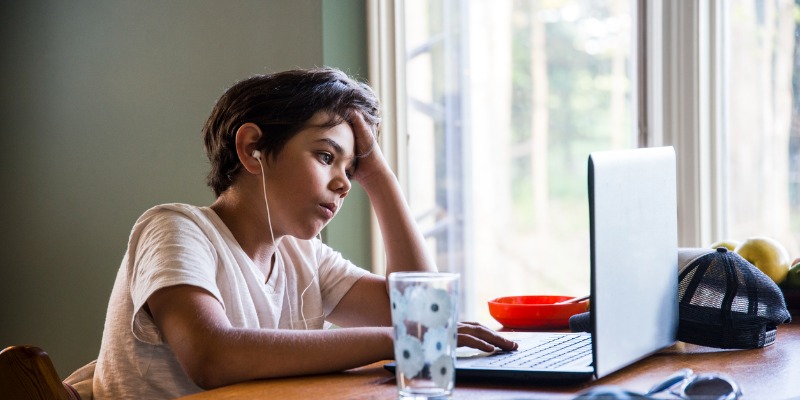Solar eclipse school closures underscore impact of learning loss

Schools are closed out of an “abundance of caution.” No doubt you’ve heard this phrase many times over the last few years. It was commonly used during the pandemic when provincial governments closed schools for months on end—even after it was widely known that COVID-19 posed little risk to most children.
Ontario schools were closed for 135 days during the pandemic, more than any other province. Parents and teachers are still trying to recover from this enormous learning loss. Clearly, this was one situation where an abundance of caution caused more harm than it prevented.
Sadly, it appears that provincial officials and school board administrators haven’t learned from their mistakes. Instead of making every effort to protect instructional time and ensure that schools remain open, students are being sent home for ever more dubious reasons.
For example, school boards across Ontario cancelled classes on April 8, the day of the solar eclipse. Apparently administrators felt there was too great a risk that students might look at the sun during the eclipse and damage their eyes. No doubt more than a few of them glanced at the sun while sitting at home that day. However, there was no need for the school closures to be as total as the eclipse. If they were really that concerned, school officials could have kept students indoors or simply altered the dismissal times.
Initially, the Waterloo Region District School Board (WRDSB) took a common sense approach by stating that schools would remain open and teachers would use the eclipse as a learning opportunity for students. Then, only days before the eclipse, the WRDSB suddenly reversed itself and said their schools would indeed close on April 8, and students would have the opportunity to engage in “asynchronous remote learning” instead.
This decision sent the unfortunate message that WRDSB trustees are incapable of standing up to pressure from people who think that schools must close at the slightest sign of real or presumed danger. As for the notion that remote learning was an adequate substitute, our experience during the pandemic showed that for most parents and students, remote learning was thin gruel indeed.
As a further sign of how far paranoia has crept into the education system, some teacher unions demanded they too should be able to work from home during the eclipse. For example, Jeff Sorensen, president of the Hamilton local teacher union, said, “If it’s not safe for children [to be at school], then it’s not safe for adults.”
The union representing Toronto’s Catholic teachers made a similar request. In a memo to its members, local union president Deborah Karam said the union was “intensifying our efforts” to ensure that teachers be allowed to complete their professional development activities at home that day. Surprisingly, no union leader has yet explained why teachers would be less likely to look at the sun while at home than at school.
Of course, school boards must focus on education while also looking out for the wellbeing of students. But there’s more to student wellbeing than simply shielding them from all perceived risks. Extended school closures cause considerable harm to students because they lead to significant learning loss.
By normalizing the practise of closing schools at the slightest sign of danger, real or perceived, we risk raising a generation of young people who lack the ability to do a proper risk assessment. Life itself comes with risk and if we all took the same approach to driving a car that school boards take to school closures, would never set foot in a vehicle again.
Ontario students had a once-in-a-lifetime opportunity to experience a solar eclipse in an educational environment, guided by their teachers. While some parents no doubt taught their children about the eclipse, many others had to be at work.
By closing schools out of an “abundance of caution,” school boards sent the message that school is not a place where unique educational events can be experienced together. Students should be in school during events such as the eclipse, not sitting at home.
If we’re going to exercise an abundance of caution, let’s be a lot more cautious about the risks of closing schools at the drop of a hat.
Author:
Subscribe to the Fraser Institute
Get the latest news from the Fraser Institute on the latest research studies, news and events.

